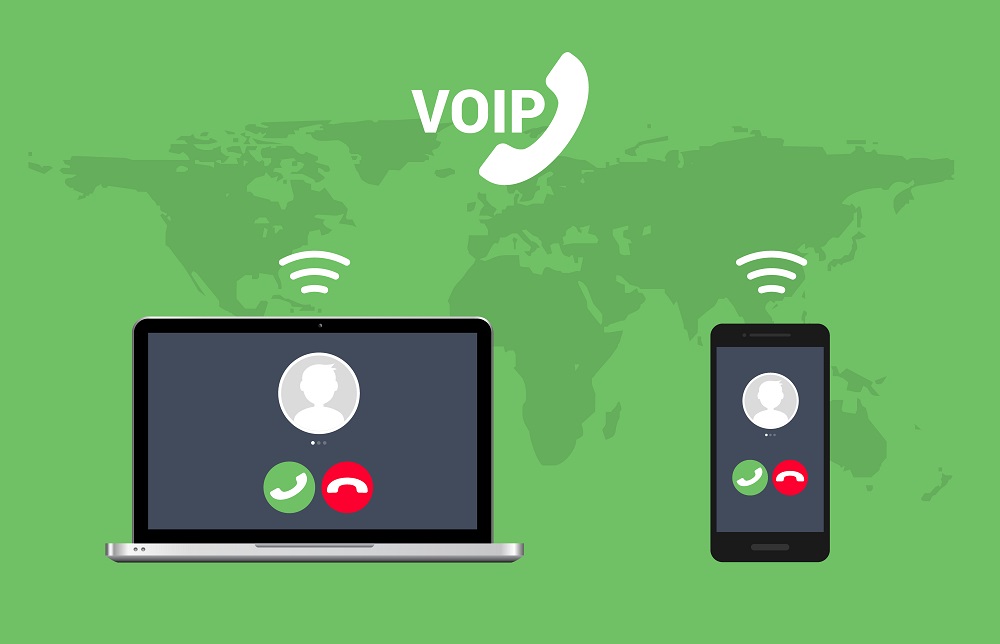
The use of internet connections for purposes that previously used other lines is becoming more and more common in recent years, and a great example for many companies and individuals is known as VoIP – voice over internet protocol. What exactly is this, and why might it be something you should consider as an IT solution for your business?
At Elevated Networks, we’re happy to assist clients around Salt Lake City, St. George and other parts of Utah with all their IT and telecom needs, which include numerous areas – cybersecurity, cloud services, infrastructure management and more. VoIP setup and maintenance is another area we’re happy to help with – let’s go over how this works and some of the key benefits that utilizing it offers.
Defining VoIP
For those just learning about VoIP, it stands for “Voice over Internet Protocol” and is a form of communication technology that allows users to make telephone calls using the internet instead of a phone line from the traditional public switched telephone network (PSTN). Unlike traditional landlines – which require dedicated physical wires between two points – VoIP uses data packets on an IP network, allowing calls to be made from any device that is connected to the internet.
With nothing but a high-speed internet connection, you can completely convert your phone system to VoIP and get rid of the traditional landline. This can reduce your costs significantly, as you’ll no longer need to pay for line rental or long-distance calls – all you will need is a secure connection to the internet and a device with an IP address.
Moving Toward UCaaS
With an eye to the future, it’s important to note that VoIP is evolving toward an eventual unified communication solution known as Unified Communications as a Service, or UCaaS. While VoIP primary covers inbound and outbound voice calls, UCaaS is geared toward routing all business communications of any kind over internet protocol.
These may include texts, screen-shares, video conferences, meetings and more. There is already a robust and growing market for UCaaS, and VoIP is something of a first wave here. Look to see more and more of UCaaS here moving forward.
Technical Basics
From a simple perspective, here’s how VoIP works on the technical side:
- Connection: When it’s first being set up, your phone line will be disconnected and then reconnected to your switch our router setup. This will allow the phone and computer systems to communicate with each other.
- Data Transmission: Once connected, your device needs to convert sound into data packets – like any other type of network transmission – that can be sent through the internet. The process is called “codec”
- Receiving Data: On the other end, another device will decode the data packets and turn them back into sound.
VoIP offers several major advantages over traditional landlines – we’ll spend our next few sections going over those.
Affordability
Especially for many businesses where multiple lines are needed for different purposes, VoIP can be a more cost-effective solution. With an internet connection and the right setup, you won’t have to worry about paying for line rentals or long-distance fees – all you need is that one secure connection and the ability to host a data center in your office.
In fact, even many individual consumers are now making the switch due to how much money they can save over traditional PSTN services.
Scalability
VoIP is also incredibly easy to scale up or down – a great benefit if you’re looking for a phone system that can grow with your business. It doesn’t matter what size company you have, setting up VoIP doesn’t require any hardware to be installed and you can easily add or remove lines as needed.
If your company expands, VoIP makes it easy to quickly add more phone numbers and new features without having to worry about the underlying infrastructure. Additionally, if your requirements change, you can also eliminate any excess costs by taking away those extra lines.
Upgraded Call Quality
Have you been dealing with muffled, fuzzy or otherwise faulty sound from your traditional landlines? VoIP offers an obvious upgrade in call quality since it uses the same type of data that’s used for other types of internet communication such as streaming and downloading.
This makes conversations through VoIP much clearer and more reliable compared to traditional landline connections, which can experience issues depending on many factors – time of day, network congestion, etc.
Upgraded Features
Many VoIP services come with features that are not available on traditional landlines – including auto attendant, call routing, call recording, IVR (Interactive Voice Response), voicemail to email and more. These can help make your business run smoother by automating many of the mundane tasks associated with managing a phone system.
Much Easier for Remote Work
If part or all of your workforce is working remotely, VoIP can make life much easier. All workers need to do is download an app on their computer or mobile phone and they’re able to stay connected as though they were in the office.
Plus, since calls are routed over the internet instead of a physical connection, remote employees don’t have to worry about patchy landline connections or dealing with unreliable cell phone service.
VoIP is a great option when it comes to finding an IT solution for your business. It’s not only more affordable than traditional landlines, but also offers upgraded features and call quality, scalability, and easier remote work options – making it the perfect choice for many companies looking to cut costs.
For more on this, or to learn about any of our IT or telecom solutions for clients in SLC, St. George or other parts of Utah, speak to our experts at Elevated Networks today.


